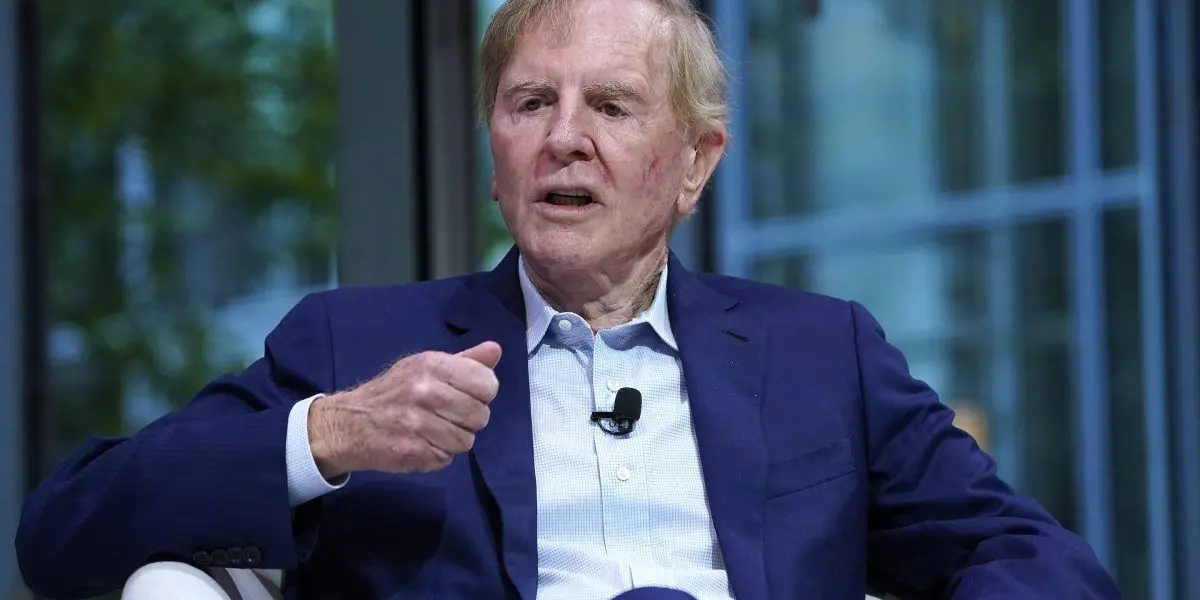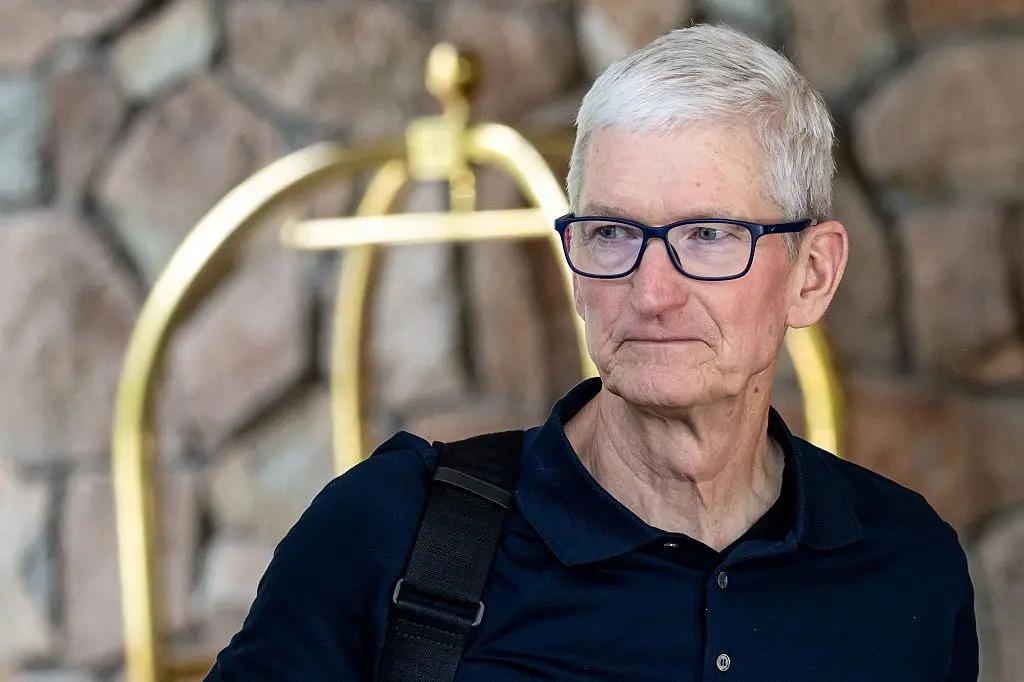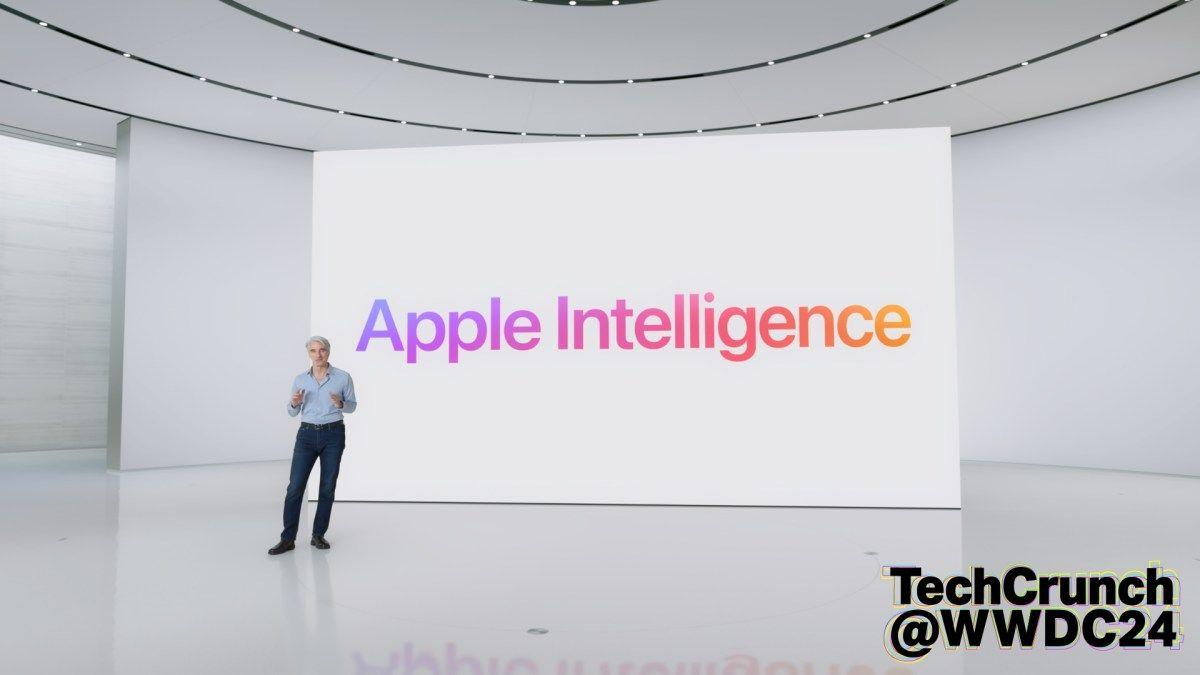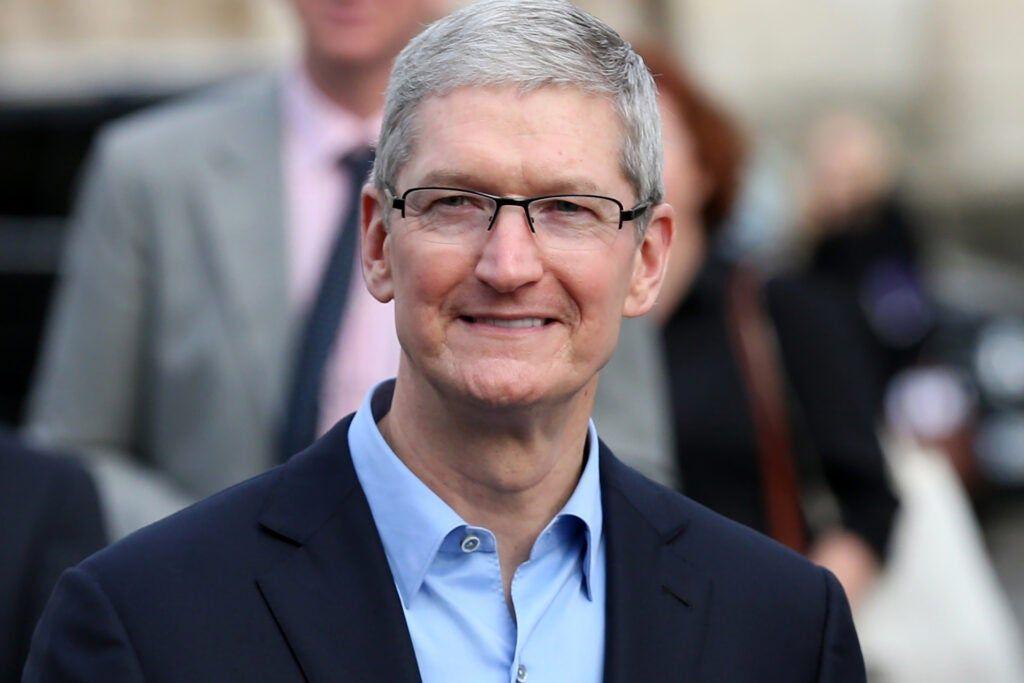Former Apple CEO John Sculley Warns: OpenAI Emerges as Apple's First Major Competitor in Decades
4 Sources
4 Sources
[1]
Former Apple CEO says 'AI has not been a particular strength' for the tech giant and warns it has its first major competitor in decades | Fortune
Speaking to Fortune's Diane Brady at the Zeta Live conference in New York on Thursday, he warned Apple was facing its "first real competitor" in "many decades" in OpenAI. "AI has not been a particular strength for them," Sculley said of Apple. Wall Street has mounted pressure on Apple as it struggles to make the same inroads in AI as its Magnificent Seven and private company counterparts. Last decade, Apple appeared to make savvy moves in building momentum in AI, launching Siri in 2011 and poaching John Giannandrea from Google in 2018 to be its head of AI. But the company was caught flat-footed after OpenAI's release of ChatGPT in 2022, and when it finally announced its "Apple Intelligence" AI strategy in June 2024, results fell short. Apple said in June it was delaying its AI upgrades to Siri until 2026, and Giannandrea was sidelined from the project. The company was even considering using Anthropic or OpenAI's AI technology to power Siri over its own in-house models, Bloomberg reported in June. Even its most recent blowout earnings failed to assuage investors of concerns around not only AI adoption, but also the impact of higher tariffs costing the company $800 million in the previous quarter. For his part, Cook told investors in Apple's most recent earnings call the company is taking steps to both restructure staff internally and acquire other companies to catch up in the AI race. "We have a great team, and we're putting all of our energy behind it," he said. Sculley, who served as CEO of Apple from 1983 to 1993, acknowledged the possibility of Cook's tenure coming to an end, saying on Thursday that whoever succeeds him should help transition the company from an orientation around apps to agentic AI. It is this push toward agentic AI that has Sculley believing OpenAI presents a real threat to Apple's competitive prowess. Apps are no longer as effective as a subscription model, he said, which is how OpenAI operates ChatGPT. "When we had apps at the center of everything, it was selling tools, selling products," Sculley said. "When you think of subscription, it's about people paying for something as long as they need it." OpenAI has also benefited from the talent of Jony Ive, Apple's former design chief. He joined Sam Altman's burgeoning company as part of a $6.5 billion acquisition of IO, a start-up created by Ive. Ive's nearly 30 years at Apple saw the explosion of the company's line of technology, starting with the iMac. "He's the one who actually designed and built the iMac, the iPod, the iPhone, and the iPad," Sculley said. "If there's anyone who is probably going to be able to bring that dimension to the LLM, in this case OpenAI, it's probably going to be Jony Ive, working with Sam Altman." The designer has been tasked with creating OpenAI's AI-first devices, an expansion to hardware sparked by its acquisition of IO. "That momentum has led us to create 15 to 20 really compelling product ideas. The challenge is to focus," Ive told Altman at the company's DevDay conference last week. "It would be easy if you knew there are three good ones. It's just not like that. We're designing a family of products. And we're trying to make sure we're judicious and thoughtful in what we focus on and to then not be distracted."
[2]
Ex-Apple CEO John Sculley Says This Company Is Apple's First 'Real Competitor' in Years
Former Apple CEO John Sculley, who famously led the company from 1983 to 1993, believes that ChatGPT creator OpenAI is Apple's "first real competitor in many, many decades." Speaking on a panel at Zeta Live, an annual event hosted by Zeta Global, a marketing technology firm that he cofounded in 2007, Sculley said that he has "huge admiration for the way Tim Cook has run Apple," but that "AI has not been a particular strength of theirs." Sculley explained that in the 80s, Steve Jobs saw personal computing as a medium for empowering office workers with tools that provide rapid access to knowledge. Now, he says, AI agents that can autonomously carry out workflows are handling "more and more of the heavy lifting" that knowledge workers for decades have done in tandem with personal computers." Where Apple's personal computing revolution imbued workers with intelligence, Scully said, agentic AI is the intelligence, capable of doing the work previously entrusted to well-trained humans. "It completely changes the way we do business models," he added. Going forward, Sculley anticipates more companies moving to subscription-based business models, because instead of selling tools that enhance worker productivity, companies will be selling access to solutions that operate on their own, with very little human interaction. In this "agentic era," he said, a model in which customers pay for a solution for as long as they need it makes more economic sense. This waning dependence on individual apps could be a challenge for Apple, which has built a massive app-based ecosystem. The company recently said that the App Store "facilitated $406 billion in developer billings and sales in 2024." Acknowledging rumors that Cook is planning to retire soon, Sculley said that whoever becomes the next Apple CEO will need to position the company for an era in which "we don't need a lot of apps, it could all be done with smart agents working across workflow automation." It appears OpenAI is already positioning itself for such an era. At the company's DevDay conference on October 6, OpenAI CEO Sam Altman announced the introduction of apps within ChatGPT, with early adopters including Figma, Booking.com, and Canva. As Sculley said, this new feature enables consumers to offload some of the "heavy lifting" of using apps to AI. Another OpenAI-shaped challenge for Apple? Going up against their beloved former head designer, Jony Ive. In May OpenAI announced that it had acquired Ive's hardware company, io, for $6.4 billion in order to collaborate on an Ive-designed, OpenAI-powered physical device. "If there's anyone who's probably going to be able to bring that dimension to the LLM," said Sculley, "it's probably going to be Jony Ive working with Sam Altman." OpenAI has been on a dealmaking tear recently. This morning, the company announced a deal with chipmaker Broadcom to develop and deploy 10 gigawatts of OpenAI-designed AI accelerator hardware. That deal builds on other recent agreements with fellow chipmakers like Nvidia and AMD that cumulatively have secured over 30 gigawatts of compute capacity just in 2025.
[3]
Former Apple CEO John Sculley Identifies This Company's As Apple's First Real Competitor In Decades - Apple (NASDAQ:AAPL), Amazon.com (NASDAQ:AMZN)
John Sculley, the former CEO of Apple Inc. (NASDAQ:AAPL), has identified OpenAI as major competitor to Apple in years. He also predicted that AI will lead to a shift to subscription-based business models. Sculley Calls OpenAI Apple's First Major Rival In Decades At the Zeta Live conference in New York City on Thursday, Sculley, Apple's CEO from 1983 to 1993, called the Sam Altman-led company as Apple's "first real competitor" in "many decades," reported Business Insider on Monday. "AI has not been a particular strength for them," said Sculley about Apple. The former Apple CEO remarked that OpenAI's agentic AI will take over the demanding tasks in knowledge workers' workflows. See the price action of AAPL here. Sculley also addressed the possibility of current Apple CEO Tim Cook retiring soon. He emphasized that Cook's successor would need to guide Apple through the transition from the apps era to the agentic era. According to him, this shift will prompt more technology companies to embrace subscription-based business models. "In the agentic era, we don't need a lot of apps, it can all be done with smart agents," Sculley said. "That'll shift more technology companies to subscription-based business models." He believes that Apple's future success will depend on its ability to adapt to this new era. See Also: Donald Trump Once Spent Nearly $100K On Full-Page Ads to Tell America to 'Stop Being Laughed At' Sculley's revelation comes as Apple navigates major shifts in its AI strategy, following a period of lagging behind Meta Platforms (NASDAQ:META), Amazon.com Inc. (NASDAQ:AMZN), Alphabet (NASDAQ:GOOGL) (NASDAQ:GOOG) and Open AI. In September, the company announced a revamp of its AI stratIgy, prioritizing chatbot-like experiences and overhauling its Siri voice assistant. This move was seen as a response to Apple's previous dismissal of chatbot-driven approaches, which had driven users seeking a genuine chatbot experience towards standalone OpenAI apps. OpenAI's growing influence was further underscored in May when the company acquired Jony Ive's startup for $6.5 billion. This acquisition, which saw Ive, a key player in Apple's design history, take on the role of design director at OpenAI, was seen as a significant challenge to Apple's stronghold in the tech industry. These developments indicate that OpenAI is not only a significant competitor for Apple but also a driving force behind the evolution of the tech industry as a whole. Benzinga's Edge Rankings place Apple in the 63rd percentile for momentum and the 29h percentile for growth, reflecting its average performance in these areas. Check the detailed report here. READ NEXT: Steve Jobs Taught Guy Kawasaki Don't Make Things 'Slightly Better' -- Here Is What The Apple Co-Founder Thought About Big Changes And Big Money Image via Shutterstock Disclaimer: This content was partially produced with the help of AI tools and was reviewed and published by Benzinga editors. AAPLApple Inc$248.941.50%OverviewAMZNAmazon.com Inc$218.200.85%GOOGAlphabet Inc$240.491.26%GOOGLAlphabet Inc$239.601.28%METAMeta Platforms Inc$711.620.90%Market News and Data brought to you by Benzinga APIs
[4]
Former Apple CEO John Sculley says OpenAI is Apple's first real competitor in decades, here's why
He suggested Apple's next CEO must lead the shift toward AI-driven smart agents and automation. Former Apple CEO John Sculley has stated that Apple has a major competitor in the rapidly expanding AI world. During the Zeta Live conference in New York City on Thursday, Sculley, according to Business Insider, described OpenAI as "the first real competitor" Apple has faced in decades, pointing out that the business has generally trailed in artificial intelligence development. Sculley said, "AI has not been a particular strength for them," in reference to Apple's lag behind companies like OpenAI, Google, Amazon, and Meta in the AI race. AI-driven projects by Apple, such as a planned redesign of its Siri assistant early this year, have been delayed. Sculley, who managed Apple from 1983 to 1993 and helped popularise the Mac brand, also commented on the succession rumours surrounding current CEO Tim Cook. He argued that Apple's next CEO must steer the company from an "apps era" to an "agentic era," in which AI agents may conduct complex activities on behalf of consumers. According to Sculley, agentic AI has the potential to transform knowledge work by automating repetitive processes, which will incentivise tech companies to adopt subscription-based business models. "Selling tools or products was the main goal when apps were popular. In contrast, subscriptions allow users to pay for services for as long as they require them," he said, indicating the possibility of more stable sources of income. Sculley also pointed out the trend of Apple alums entering the AI space, citing former design chief Jony Ive, whose startup company for devices was acquired by OpenAI earlier this year for more than $6 billion. At OpenAI's DevDay, Ive discussed developing hardware to address limitations created by smartphones and tablets. "Jony Ive designed and built the iMac, iPod, iPhone, and iPad," said Sculley. "If anyone can bring that same design dimension to OpenAI's large language models, it's him, working alongside Sam Altman," he added.
Share
Share
Copy Link
John Sculley, Apple's ex-CEO, identifies OpenAI as Apple's first significant rival in years, highlighting Apple's AI challenges and the potential shift in tech business models.

Apple Faces New AI Challenger
In a surprising turn of events, former Apple CEO John Sculley has identified OpenAI as Apple's "first real competitor in many, many decades"
1
. Speaking at the Zeta Live conference in New York, Sculley highlighted Apple's struggles in the AI domain, stating, "AI has not been a particular strength for them"2
.Apple's AI Challenges
Despite early moves in AI, such as launching Siri in 2011 and hiring John Giannandrea from Google in 2018, Apple has faced setbacks
1
. The company was caught off guard by OpenAI's ChatGPT release in 2022, and its "Apple Intelligence" AI strategy announcement in June 2024 fell short of expectations. Apple even delayed AI upgrades to Siri until 2026 and considered using Anthropic or OpenAI's technology to power Siri1
.The Shift to Agentic AI
Sculley emphasized the transition from an app-centric model to agentic AI, which he believes will revolutionize business models
2
. He explained, "When we had apps at the center of everything, it was selling tools, selling products. When you think of subscription, it's about people paying for something as long as they need it"1
.OpenAI's Strategic Moves
OpenAI has been making significant strides in the AI industry. The company acquired Jony Ive's hardware company, io, for $6.5 billion, bringing Apple's former design chief on board to create AI-first devices
1
2
. Additionally, OpenAI has secured partnerships with chipmakers like Broadcom, Nvidia, and AMD, amassing over 30 gigawatts of compute capacity in 2025 alone2
.Related Stories
Implications for Apple's Future
With rumors of Tim Cook's potential retirement, Sculley stressed the importance of Apple's next CEO leading the transition from the app era to the agentic era
3
. He stated, "In the agentic era, we don't need a lot of apps, it can all be done with smart agents. That'll shift more technology companies to subscription-based business models"3
.Apple's Response
Tim Cook has acknowledged the challenges and assured investors that Apple is taking steps to restructure staff internally and acquire companies to catch up in the AI race
1
. "We have a great team, and we're putting all of our energy behind it," Cook stated in a recent earnings call1
.As the tech landscape continues to evolve, Apple faces the challenge of adapting to the new AI-driven era while maintaining its position as a leader in consumer technology. The competition from OpenAI and other AI-focused companies may push Apple to accelerate its AI development and potentially reshape its business model in the coming years.
References
Summarized by
Navi
Related Stories
Recent Highlights
1
Samsung unveils Galaxy S26 lineup with Privacy Display tech and expanded AI capabilities
Technology

2
Anthropic refuses Pentagon's ultimatum over AI use in mass surveillance and autonomous weapons
Policy and Regulation

3
AI models deploy nuclear weapons in 95% of war games, raising alarm over military use
Science and Research








